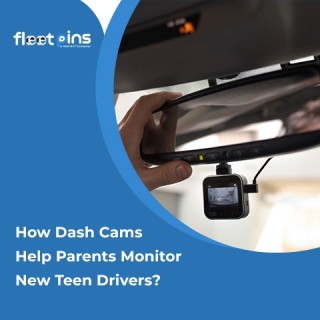- On 2024-08-05
How to Choose the Right GPS Tracking Device: A Comprehensive Guide
GPS tracking devices have become indispensable tools for both personal and professional use. Whether you need to keep track of your vehicle, monitor the whereabouts of a loved one. However, with so many options available, choosing the right GPS tracking device can be overwhelming. This article will guide you through the process, helping you understand what GPS trackers are and offering six practical tips to find the perfect device for your needs.
What are GPS Trackers?
GPS trackers are devices that use the Global Positioning System (GPS) to determine the precise location of an object or person. These devices receive signals from GPS satellites and use this information to calculate their exact position. The data is then transmitted to a computer or smartphone, allowing real-time tracking and historical route information. GPS trackers come in various forms, including vehicle trackers, personal trackers, and asset trackers, each designed for specific applications.
How to Find the Right GPS Tracker
Choosing the right GPS tracker involves considering several factors to ensure it meets your specific needs. Here are six essential tips to help you make the right choice:
1- Determine Your Purpose
The first step in choosing a GPS tracker is to determine its primary purpose. Are you tracking a vehicle, a person, or an asset? Vehicle trackers are designed to monitor the location and movement of cars, trucks, or motorcycles. Personal trackers are small, portable devices ideal for tracking individuals, such as children or elderly family members. Asset trackers are used to monitor valuable items, such as equipment or shipments. Knowing the purpose will help narrow down your options and find a device tailored to your needs.
You May Also Read: Top Benefits of Implementing GPS Trackers in Fleet Operations
2. Consider Real-Time Tracking vs. Passive Tracking
GPS trackers can be categorized into two types: real-time (active) and passive. Real-time trackers continuously send location data to a central server, allowing you to monitor the device's position in real time through a smartphone or computer. Passive trackers, on the other hand, store location data internally and require you to download the information later. If you need constant updates and immediate access to location data, a real-time tracker is the better choice. Passive trackers are suitable for situations where real-time monitoring is not essential.
3. Check Battery Life and Power Options
Battery life is a critical factor when selecting a GPS tracker. Some devices have long-lasting batteries that can operate for weeks or even months on a single charge, making them ideal for long-term tracking. Others require more frequent recharging, which might be inconvenient for certain applications. Additionally, some vehicle GPS trackers can be hardwired to the vehicle's power supply, eliminating the need for battery changes. Consider your tracking duration and choose a device with a battery life that suits your needs.
4. Evaluate Coverage and Signal Strength
Not all GPS trackers offer the same level of coverage. Some devices may work well in urban areas but struggle in rural or remote locations. Ensure the GPS tracker you choose has reliable coverage and strong signal strength in the areas where you plan to use it. Check if the device supports additional technologies, such as cellular or satellite communication, to enhance coverage and ensure accurate tracking even in challenging environments.
5. Assess Additional Features
Modern GPS trackers come with a variety of additional features that can enhance their functionality. Some common features include geofencing, which allows you to set virtual boundaries and receive alerts when the tracker enters or exits a designated area, and SOS buttons for emergency situations. Other features might include historical route playback, speed alerts, and integration with mobile apps. Evaluate these features based on your requirements and choose a device that offers the functionalities you need.
You May Also Read This Article For Details on this Topic: 10 Essential Features to Look for in a GPS Tracking Unit
6. Review Pricing and Subscription Plans
GPS trackers vary widely in price, and many require a subscription plan for real-time tracking services. When comparing devices, consider the upfront cost as well as any ongoing subscription fees. Some trackers offer free basic services with optional premium features, while others require a monthly or annual subscription. Make sure to choose a device and plan that fit within your budget while providing the necessary tracking capabilities.
Fleet Pins Offers a Wide Range of GPS Trackers
Fleet Pins provide an extensive selection of GPS trackers designed to meet diverse tracking needs. Whether you require a reliable vehicle tracker for fleet management or a compact personal tracker for loved ones, Fleet Pins has the perfect solution. Their GPS trackers come equipped with advanced features, robust battery life, and excellent coverage, ensuring you get the best tracking experience possible.
Conclusion
Choosing the right GPS tracking device involves understanding your specific needs and evaluating various factors such as purpose, tracking type, battery life, coverage, additional features, and pricing. By considering these aspects, you can find a GPS tracker that meets your requirements and provides accurate, reliable tracking. With a wide range of options available from providers like Fleet Pins, securing your vehicle, assets, or loved ones has never been easier. Invest in a quality GPS tracker today and enjoy the peace of mind that comes with knowing you can monitor and protect what matters most.




